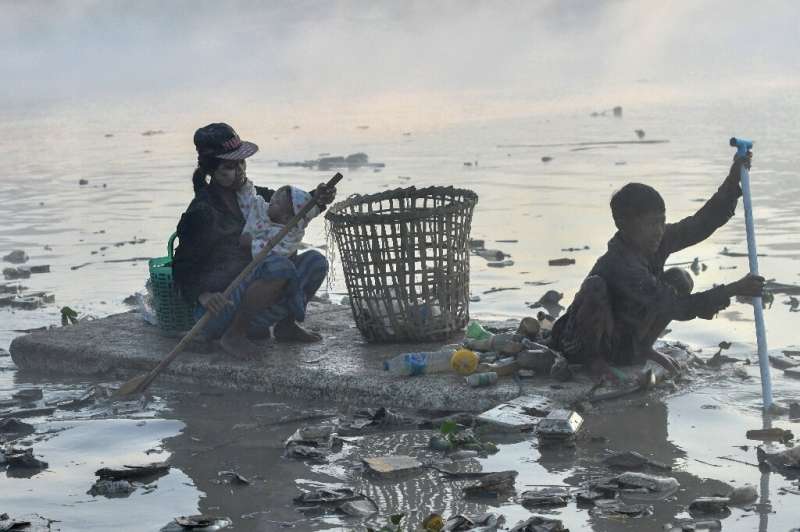Nations are being urged to stop the flow of rubbish as environmentalists ask for limiting industrial influence on the discussions as negotiations on a worldwide treaty to address plastic pollution get underway again on Monday.
About 175 countries committed last year to reach a binding agreement by 2024 to stop the pollution caused primarily by plastics made from fossil fuels, which is killing the ecosystem and contaminating people and animals’ bodies.
Among the proposals are “polluter pays” programs and a global ban on single-use plastics.
Rich G7 countries—the United States, Japan, Germany, France, United Kingdom, Italy, and Canada—made a commitment last month to end plastic pollution by the year 2040.
They claimed that the growth of a circular economy and the potential for limiting or outright prohibiting plastics that are only used once and non-recyclables made this goal realistic.
In the past 20 years, plastic output has doubled. It serves as food packaging, is woven into clothing and building materials, and is a crucial component of many disposable medical goods.
According to the Organisation for Economic Co-operation and Development (OECD), 460 million tonnes (Mt) of the substance were produced in 2019, and if nothing is done, output might triple again by 2060.
Less than 10% of plastic garbage is recycled, and about a third of plastic waste is thrown after being used just once or a few times.
Air pollution results from the inappropriate burning or environmental disposal of millions of tons of plastic garbage. It disintegrates over time into minute pieces that have been discovered inside human bloodstreams, placentas, and the deepest marine trenches.
The United Nations Environment Programme (UNEP) urged systemic change in a report released in mid-May to wean societies off of disposable consumption by dramatically increasing reuse and recycling while promoting alternative materials.
However, campaigners want to put more emphasis on reducing output.
In an open letter last week, Louise Edge, Global Plastics Campaigner for Greenpeace UK, expressed worries about industrial involvement in the discussions and referred to the treaty as a “once in a generation opportunity to solve the plastics crisis.”
“Whether or not it is successful or not relies on whether or not governments are brave enough to make sure that the agreement delivers what the science says is needed—a cap and phasedown of plastic production.”
Ambitions
The European Union, Canada, and Mexico are among the 53 nations that make for the “High Ambition” alliance, which is led by Rwanda and Norway and prioritizes reducing plastic production and usage.
Instead, some countries are advocating for a reliance on innovation, recycling, and improved waste management.
Historically, rich economies have polluted more; for years, they sent waste to less developed countries for recycling, where it frequently ended up in the environment.
Some emerging countries are concerned about regulations that can burden their economy excessively.
The agreement’s legal force is also up for debate.
According to a representative for the French foreign office, the United States, for instance, wants to restrict the legal reach of the agreement, allowing signatories to find solutions in national plans.
In mid-May, celebrities including Jane Fonda and Joaquin Phoenix joined Greenpeace U.S. in urging US President Joe Biden to set higher goals.
Fossil fuels
The Paris meetings are the second of five stages of negotiations that are anticipated to result in a historic agreement spanning the whole life cycle of plastics. They follow an initial session of technical discussions in November in Uruguay.
On Saturday, the host nation France aims to host a political conference with about 40 environmental ministers and diplomats to present suggestions by the EU—one of the biggest consumers of plastic in the world.
While many experts and scientists have been unable to attend owing to a shortage of space, campaigners have voiced concerns about the plastics industry’s role in the process.
This week, 175 advocacy organizations joined a Greenpeace letter to UNEP expressing alarm over “the impact that the fossil fuel and petrochemical sectors and their representatives in Congress are having on the negotiations”.

